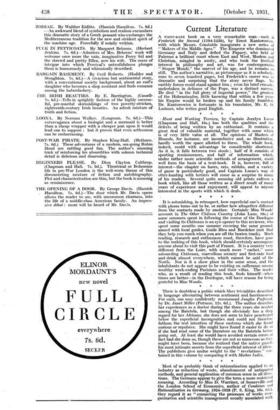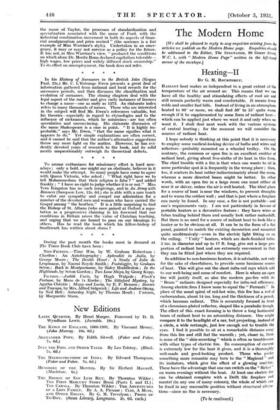Most of us probably think of rationalization applied to an
industry as reduction of waste, abandonment of antiquated methods, and general application of common sense in all direc- tions. The Germans appear to give the term a more restricted meaning. According to Miss D. Warriner, of Somerville and the London School of Economics, author of Combines and Rationalization in Germany, 1924-1928 (P. S. King, 10s. 6d.). they regard it as " connecting the processes of works =or- ganization and scientific 'management usually associated with the name of- Taylor, the processes of standardization and, specialization associated with the name of Ford, with the industrial combination movement in both its aspects of finan- cial amalgamation and price control " (the sentence is a fair example of Miss Warriner's style). Undertaken in an emer- gency, it may or may not survive as a policy for the future. It has not, in Miss Warriner's view, " produced the conditions on which alone Dr. Moritz Bonn declared capitalism tolerable— high wages, low prices and widely diffused stock ownership." To its effect on unemployment, the book does not refer.
* * * *











































 Previous page
Previous page